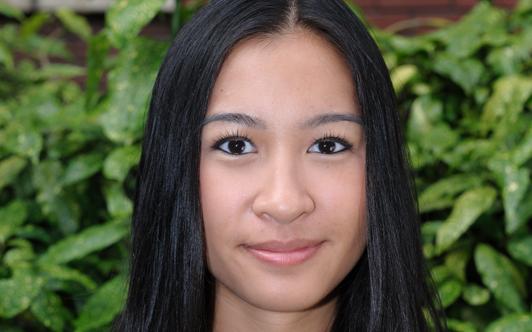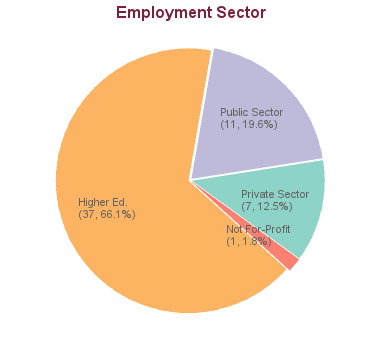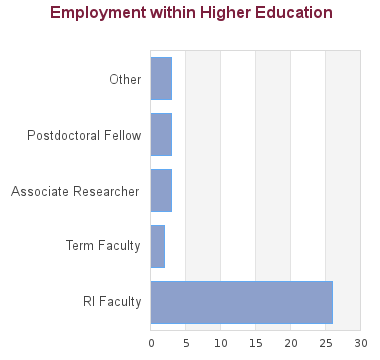
Lianping Ti
Job Title
Research Scientist
Employer
BC Centre for Excellence in HIV/AIDS
Applicants to Master’s and Doctoral degrees are not affected by the recently announced cap on study permits. Review more details
The School of Population and Public Health offers a research-oriented PhD program that enables students with a masters degree to advance their knowledge and skills in epidemiological and biostatistical methods. Students will further their research training by applying these methods to independent thesis research under the supervision of a faculty member. Students can pursue thesis research in a wide variety of topics related to the health of populations and the delivery of health services.
The Faculty of Graduate and Postdoctoral Studies establishes the minimum admission requirements common to all applicants, usually a minimum overall average in the B+ range (76% at UBC). The graduate program that you are applying to may have additional requirements. Please review the specific requirements for applicants with credentials from institutions in:
Each program may set higher academic minimum requirements. Please review the program website carefully to understand the program requirements. Meeting the minimum requirements does not guarantee admission as it is a competitive process.
Applicants from a university outside Canada in which English is not the primary language of instruction must provide results of an English language proficiency examination as part of their application. Tests must have been taken within the last 24 months at the time of submission of your application.
Minimum requirements for the two most common English language proficiency tests to apply to this program are listed below:
Overall score requirement: 100
Reading
22
Writing
21
Speaking
21
Listening
22
Overall score requirement: 7.0
Reading
6.5
Writing
6.5
Speaking
6.5
Listening
6.5
Some programs require additional test scores such as the Graduate Record Examination (GRE) or the Graduate Management Test (GMAT). The requirements for this program are:
The GRE is required by some applicants. Please check the program website.
All applicants have to submit transcripts from all past post-secondary study. Document submission requirements depend on whether your institution of study is within Canada or outside of Canada.
A minimum of three references are required for application to graduate programs at UBC. References should be requested from individuals who are prepared to provide a report on your academic ability and qualifications.
Many programs require a statement of interest, sometimes called a "statement of intent", "description of research interests" or something similar.
Students in research-based programs usually require a faculty member to function as their thesis supervisor. Please follow the instructions provided by each program whether applicants should contact faculty members.
Permanent Residents of Canada must provide a clear photocopy of both sides of the Permanent Resident card.
All applicants must complete an online application form and pay the application fee to be considered for admission to UBC.
| Fees | Canadian Citizen / Permanent Resident / Refugee / Diplomat | International |
|---|---|---|
| Application Fee | $114.00 | $168.25 |
| Tuition * | ||
| Installments per year | 3 | 3 |
| Tuition per installment | $1,838.57 | $3,230.06 |
| Tuition per year (plus annual increase, usually 2%-5%) | $5,515.71 | $9,690.18 |
| Int. Tuition Award (ITA) per year (if eligible) | $3,200.00 (-) | |
| Other Fees and Costs | ||
| Student Fees (yearly) | $1,116.60 (approx.) | |
| Costs of living | Estimate your costs of living with our interactive tool in order to start developing a financial plan for your graduate studies. | |
Applicants to UBC have access to a variety of funding options, including merit-based (i.e. based on your academic performance) and need-based (i.e. based on your financial situation) opportunities.
From September 2024 all full-time students in UBC-Vancouver PhD programs will be provided with a funding package of at least $24,000 for each of the first four years of their PhD. The funding package may consist of any combination of internal or external awards, teaching-related work, research assistantships, and graduate academic assistantships. Please note that many graduate programs provide funding packages that are substantially greater than $24,000 per year. Please check with your prospective graduate program for specific details of the funding provided to its PhD students.
All applicants are encouraged to review the awards listing to identify potential opportunities to fund their graduate education. The database lists merit-based scholarships and awards and allows for filtering by various criteria, such as domestic vs. international or degree level.
Many professors are able to provide Research Assistantships (GRA) from their research grants to support full-time graduate students studying under their supervision. The duties constitute part of the student's graduate degree requirements. A Graduate Research Assistantship is considered a form of fellowship for a period of graduate study and is therefore not covered by a collective agreement. Stipends vary widely, and are dependent on the field of study and the type of research grant from which the assistantship is being funded.
Graduate programs may have Teaching Assistantships available for registered full-time graduate students. Full teaching assistantships involve 12 hours work per week in preparation, lecturing, or laboratory instruction although many graduate programs offer partial TA appointments at less than 12 hours per week. Teaching assistantship rates are set by collective bargaining between the University and the Teaching Assistants' Union.
Academic Assistantships are employment opportunities to perform work that is relevant to the university or to an individual faculty member, but not to support the student’s graduate research and thesis. Wages are considered regular earnings and when paid monthly, include vacation pay.
Canadian and US applicants may qualify for governmental loans to finance their studies. Please review eligibility and types of loans.
All students may be able to access private sector or bank loans.
Many foreign governments provide support to their citizens in pursuing education abroad. International applicants should check the various governmental resources in their home country, such as the Department of Education, for available scholarships.
The possibility to pursue work to supplement income may depend on the demands the program has on students. It should be carefully weighed if work leads to prolonged program durations or whether work placements can be meaningfully embedded into a program.
International students enrolled as full-time students with a valid study permit can work on campus for unlimited hours and work off-campus for no more than 20 hours a week.
A good starting point to explore student jobs is the UBC Work Learn program or a Co-Op placement.
Students with taxable income in Canada may be able to claim federal or provincial tax credits.
Canadian residents with RRSP accounts may be able to use the Lifelong Learning Plan (LLP) which allows students to withdraw amounts from their registered retirement savings plan (RRSPs) to finance full-time training or education for themselves or their partner.
Please review Filing taxes in Canada on the student services website for more information.
Applicants have access to the cost estimator to develop a financial plan that takes into account various income sources and expenses.
60 students graduated between 2005 and 2013: 1 is in a non-salaried situation; for 3 we have no data (based on research conducted between Feb-May 2016). For the remaining 56 graduates:


These statistics show data for the Doctor of Philosophy in Population and Public Health (PhD). Data are separated for each degree program combination. You may view data for other degree options in the respective program profile.
| 2023 | 2022 | 2021 | 2020 | 2019 | |
|---|---|---|---|---|---|
| Applications | 37 | 41 | 52 | 40 | 42 |
| Offers | 16 | 21 | 22 | 22 | 19 |
| New Registrations | 12 | 13 | 16 | 16 | 11 |
| Total Enrolment | 91 | 91 | 91 | 84 | 76 |
Students in research-based programs usually require a faculty member to function as their thesis supervisor. Please follow the instructions provided by each program whether applicants should contact faculty members.
These videos contain some general advice from faculty across UBC on finding and reaching out to a supervisor. They are not program specific.
This list shows faculty members with full supervisory privileges who are affiliated with this program. It is not a comprehensive list of all potential supervisors as faculty from other programs or faculty members without full supervisory privileges can request approvals to supervise graduate students in this program.
| Year | Citation |
|---|---|
| 2023 | Dr. Desai revealed that despite better CF prognosis in recent years, people with CF still face substantial burden from lung impairment and other complications. Rising healthcare costs due to expensive medications pose additional challenges. These findings will help improve their service planning and resource allocation in the future. |
| 2023 | Dr. Nisingizwe investigated access to Hepatitis C testing and treatment in Rwanda and internationally. Her dissertation described HCV cascade of care, and patients' barriers to HCV care in Rwanda. Globally, she highlighted countries and regions with high and low access to HCV medicines and the effect of COVID-19 on HCV drug utilization. |
| 2023 | Dr. Chen unravelled relationships between diabetes medications and breast, colorectal, and pancreatic cancer risk, suggesting potential risk variations with common diabetes medications. Her study underscores the significance of understanding the long-term health impacts of prescription medications, advocating more research. |
| 2023 | Dr. Qi examined associations of widely used classes of antihypertensive medications and their subclasses with overall and site-specific risks of colorectal cancer using advanced statistical methods. His research has addressed a gap in the evidence for safety of widely used antihypertensive medications with respect to colorectal cancer risk. |
| 2023 | Dr. Ip studied the development of children assessed for autism spectrum disorder. Dr. Ip found that, regardless of diagnosis, these children all had developmental differences compared to neurotypical children. The findings stress the importance of moving towards needs and function-based funding and services in school and in the community. |
| 2023 | Dr. Andrade-Rivas studies pollution in globalized food systems. Using systems thinking, planetary health, and geospatial sciences, he evaluated the nationwide risk of pesticide exposure and adverse birth outcomes in Ecuador. He also collaborated with the Tsleil-Waututh Nation, co-leading a marine toxicology study of their traditional food systems. |
| 2023 | Dr. Cui delved into the escalating drug overdose epidemic involving opioid and methamphetamine use. Her research emphasizes the crucial need for comprehensive and integrated treatment and harm reduction strategies to address both opioid and methamphetamine use. |
| 2023 | Dr. Pataky's research explored methods to evaluate the cost-effectiveness of precision medicine technologies. She found that using genomic testing to define eligibility for cancer therapy can provide value for money. These new evaluation methods will help health care systems to better assess the value of funding precision medicine. |
| 2023 | Dr. Virk adapted a self-administered mental health screening instrument for post-secondary students (called HEARTSMAP-U). He applied a user-centred approach and engaged diverse student sub-populations in validating the instrument, to ensure it can be accurately and equitably applied in post-secondary educational settings. |
| 2023 | Dr. Nethery explored how we screen for gestational diabetes in pregnancy. Her work showed that changes in screening methods in BC were the primary drivers for a rapid increase in this condition. This points to an ongoing need to balance benefits and burdens of this diagnosis when considering screening changes. |
The School of Population and Public Health (SPPH) offers both research-oriented and professional/course-based graduate programs.
Departments/Programs may update graduate degree program details through the Faculty & Staff portal. To update contact details for application inquiries, please use this form.

Find out how Vancouver enhances your graduate student experience—from the beautiful mountains and city landscapes, to the arts and culture scene, we have it all. Study-life balance at its best!